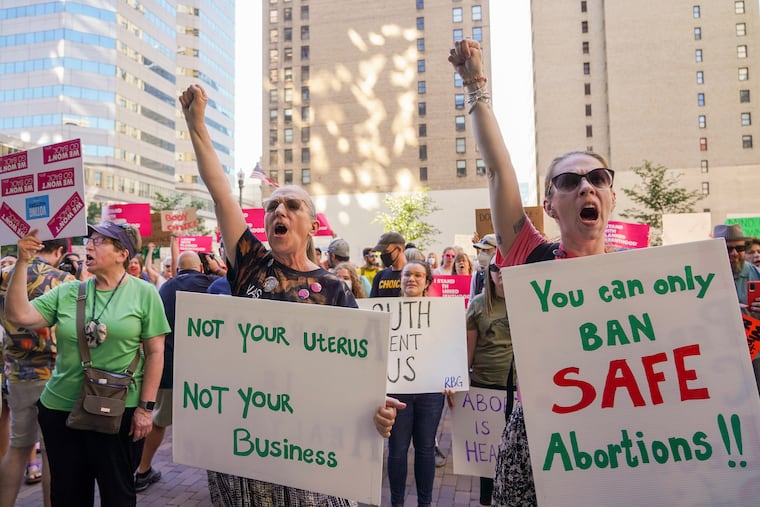With the fall of Roe v. Wade in 2022, the issue of abortion has now been left to the governance of individual states, and last week, the Pennsylvania House passed House Bill 1957.
For those unfamiliar with the bill, it consists of a joint resolution proposing an amendment to the Pennsylvania Constitution, in which personal reproductive freedom would be guaranteed. What this means for citizens of the commonwealth is that the right to privacy and bodily autonomy would, if the bill passes, be enshrined in our state constitution.
I testified at the House hearing last week about the importance of personal reproductive freedom, a cause that is near and dear to my heart.
A rare and fatal defect
During my first pregnancy, at 20 weeks of gestation, our fetus was diagnosed with a rare and deadly birth defect called congenital high airway obstruction syndrome (CHAOS), in which the trachea did not develop. As a result of the lack of an airway, fluid was building up inside our baby’s lungs, causing them to balloon into the chest, squeezing his tiny heart and inverting his diaphragm.
After visiting the Center for Fetal Diagnosis and Treatment at Children’s Hospital of Philadelphia, my spouse and I were told there were no interventions that could fix our baby’s birth defect.
Rather, we were given three options: 1) wait for the baby to go into heart failure in the womb, though we could not be guaranteed of a timeline; 2) continue the pregnancy to term if he didn’t go into heart failure, and deliver a baby who would be brain-dead; or 3) end the pregnancy.
After many hours of painful deliberation, consultation with our family and spiritual community, and attempting to determine what would involve the least amount of suffering for our child, my spouse and I chose to end the pregnancy.
Reproductive autonomy includes the right for parents to make decisions for their unborn children: for the relief of their suffering, to avoid lives of interminable pain.
On Aug. 3, 2012, I went from pregnant to grieving in a matter of hours. In the aftermath, I focused my clinical and academic career on supporting others making the same type of heartbreaking decisions, as well as reproductive justice, which focuses on the human right of every person to have a child, not have a child, and parent with dignity.
When I shared my painful story in the Pennsylvania House — an extremely vulnerable and painful experience every time I speak up — only one person commented during the Q&A session.
What kind of life?
It was Republican State Rep. Stephanie Borowicz who chose to argue with my statement that our child was not meant for this world, telling me I was lied to by my physicians and that my child was “worthy of life.”
The issue State Rep. Borowicz did not seem to grasp was that, of course, my child was “worthy of life,” but what life would he have had? One in which he was suspended in terminal darkness, living in a neonatal intensive care unit, hooked up to machines? A life we would eventually have to cut short by withdrawing life support? What kind of life would that be for him?
Heartbreaking choice
What anti-choice lawmakers like State Rep. Borowicz fail to appreciate is that, for those of us who end deeply wanted, deeply loved pregnancies due to fetal anomaly, we never question the humanity and worth of our babies. We have hopes and dreams for them from the moment we see those two pink lines pop up on the pregnancy test.
And those hopes include the desire for them to never suffer, not even for a moment, if we can prevent it.
The bill passed in the House with a vote of 14-12 and will soon head to the Senate for further consideration. I hope, when our state senators deliberate, they will not forget that reproductive autonomy includes the right for parents to make decisions for their unborn children: for the relief of their suffering, to avoid lives of interminable pain.
These are heartbreaking choices nobody ever wants to make, but if it happens to you, you’ll be grateful for the choice, too.
E. Goldblatt Hyatt is an associate professor of professional practice for reproductive justice at Rutgers School of Social Work and an associate professor in the department of obstetrics, gynecology, and reproductive sciences at Robert Wood Johnson Medical School.

